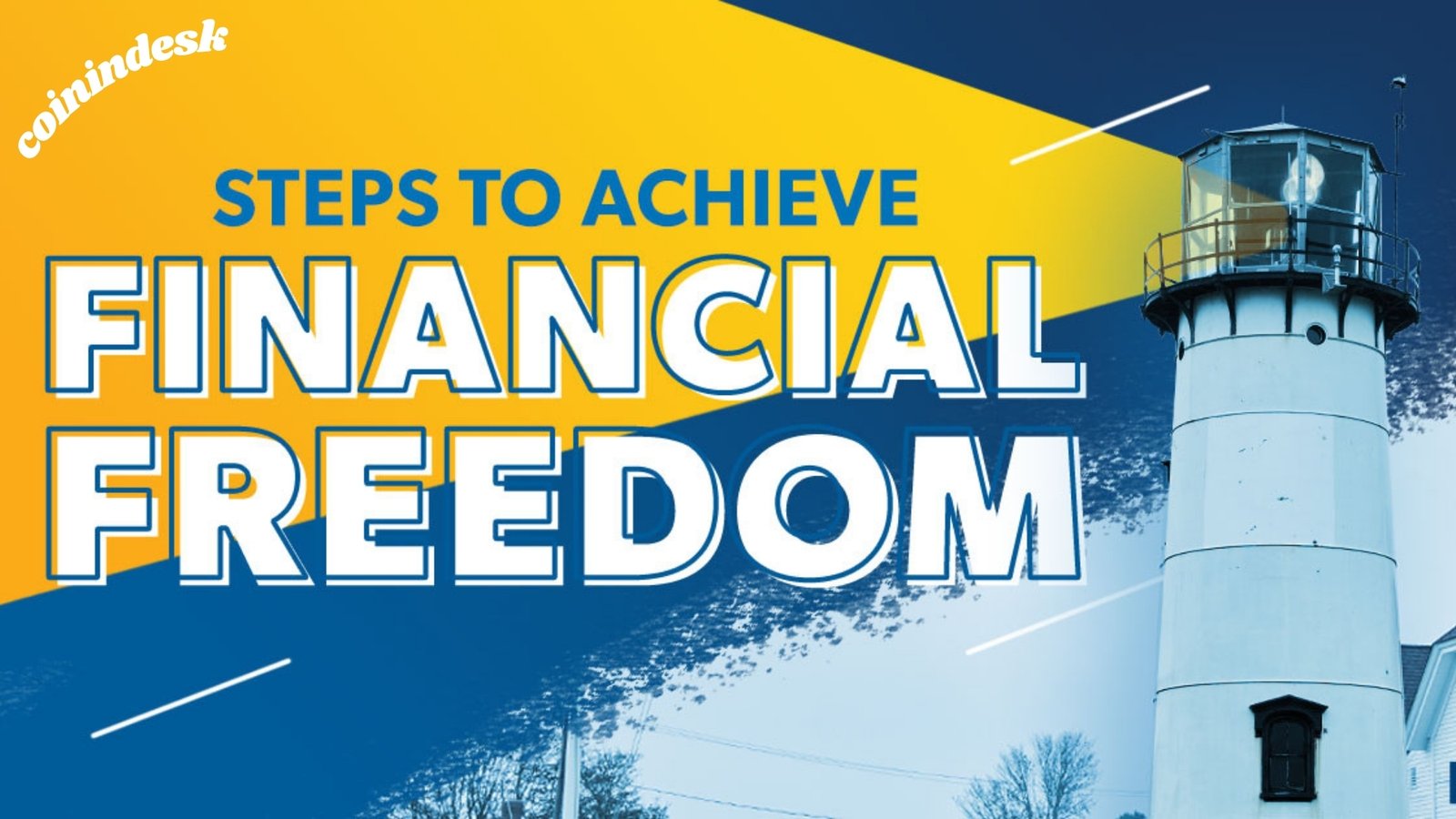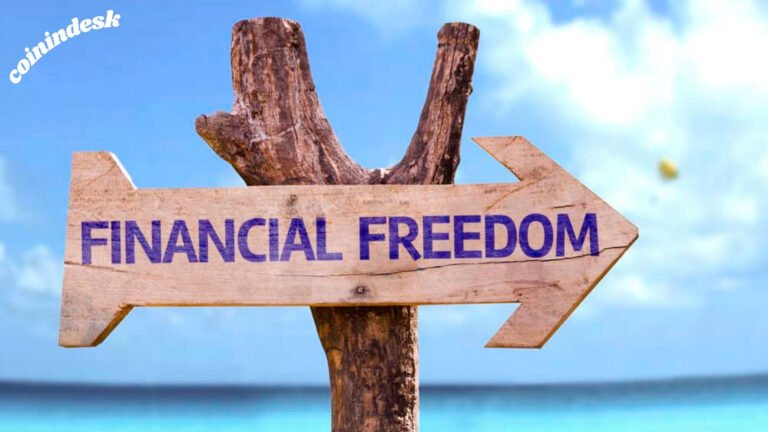What Is Financial Freedom? Many people mistakenly associate being financially free with having a high-paying job or a lot of money. The term “financial freedom” is used frequently but inaccurately. There’s no truth to that. To achieve financial independence, it is not necessary to amass vast riches.
But what does it mean to be financially free? Well, that’s the point of this comprehensive guide: to show you all the angles of financial independence and the money you’ll need to achieve it.
Understanding Financial Freedom
Because the concept of financial freedom is subjective, it might mean different things to different people. However, having sufficient liquid assets, investments, and savings to support the lifestyle you and your family desire is the essence of true financial freedom. Freedom is the capacity to do with time and money as one pleases.
You will have achieved true financial freedom when you can put your money to work for you rather than the other way around. At this stage of life, you no longer need to worry about how to pay for necessities. At last, you can do what you want, whether spending more time with family or friends or finally making the career change you’ve always dreamed of.
The following four factors are considered necessary for financial independence, according to the Consumer Financial Protection Bureau, the United States federal body responsible for establishing and executing consumer financial laws:
- Having full control over day-to-day and month-to-month finances
- Steady progress toward meeting mid and long-term financial goals
- The ability to absorb any financial emergency or shock
- The ability to make choices that lead to a happy and fulfilling life without worrying about money.
Being financially independent requires more than simply savings—it necessitates a steady stream of passive income. That’s because, without a consistent source of income, your savings will run dry at some point.
For the uninitiated, passive income is consistent money coming in from somewhere other than a job or a contract. You don’t have to put much “active” effort into acquiring it instantly. One example is income from limited partnerships, dividend stocks, affiliate marketing, rental properties, etc.
What Happens When You Are Financially Free?
When one achieves financial independence, doors open in every area of life. You are not obligated to prepare a specific plan for when you reach financial independence. Getting there is the hard part; once you do, you won’t have to worry about making ends meet, so you can devote yourself fully to fulfilling your lifelong dreams. Let’s just quickly brush through some of the biggest improvements you can expect after becoming financially free:
- No more rat races. You will no longer have to worry about things like slogging and competing hard for a pay hike or promotion in a job you may not like.
- You could even consider taking a lower-paying profession that you find more fulfilling.
- You are financially well-prepared for any emergency. Come what may—sickness, injury, business losses, or property losses —you have a certain safety cushion to survive and navigate such contingencies.
- The freedom to take a sabbatical to de-stress and focus on self-improvement.
- The ability to reevaluate your life priorities without spending the bulk of your waking hours on work.
- The ability to engage in new hobbies without letting cost become a factor.
- Peace of mind. Or, at the least, a feeling of ease knowing that your finances are sorted and that living expenses or emergency funds aren’t going to be issues anymore.
Financial Freedom vs. Financial Independence
Financial security, financial independence, and financial freedom — these terms are often used interchangeably. However, they’re not the same. Let’s quickly go through the definition of each.
- Financial security is the starting point for reaching financial independence. If you are financially secure, you can quit your job right now and still have enough money flowing in to cover your basic living expenses. Moreover, “basic living expenses” include rent, utilities, food, and clothing.
- Financial independence: It is the second major milestone in the pursuit of financial freedom. Achieving financial independence means earning enough passive income to sustain your current lifestyle even without a job.
- Financial freedom means your earnings from passive income sources are large enough to accommodate the lifestyle you have always dreamed of.
How to Obtain Financial Freedom

There are a few necessities you must attend to to achieve financial independence. For instance, you should settle all your consumer debts, including those incurred through education and credit cards. The next step is to put money aside regularly and invest wisely for a passive income stream.
No one can escape the need to work hard and strategize to the top unless born into money. Before making any plans, you must have a firfully grasps. Here’s a method that experts commonly recommend:
Five steps toward financial freedom
- First, define what financial freedom means to you. This is relatively easy to figure out — imagine how you would spend your days if money weren’t an issue. What would you want to accomplish? That’s your version of financial freedom.
- Next, find how much money you would require to lead that life you have always dreamt of. Calculate how much you need to save monthly to fund your ideal lifestyle.
- Make a detailed and practical plan to start saving accordingly—figure out where you can reduce unnecessary costs and redirect that money into your savings.
- Similarly, draw an investment plan and start investing strategically. Diversify your investment portfolio to hedge against unfavourable market conditions in the future. Furthermore, consider consulting a financial expert to help you find reliable and profitable investment options.
- A simple and frugal lifestyle often helps. So try to live below your means to the extent practically possible and avoid wasteful spending on short-term gratifications. Remember, financial discipline is crucial, and your goal of achieving financial freedom will end up being a pipe dream without it.
At the risk of stating the obvious, the earlier you start working on your plan, the better. The best time to start saving and investing is in your early 20s. The second-best time is now, without any further delay.
How much Money is Needed for Financial Freedom?

Because the quantity varies from person to person based on things, including their living goals, there is no universally applicable solution to this question. That being said, your yearly salary and anticipated living expenses are the main factors determining the money you’ll need to attain financial independence.
The “25x Rule for Retirement” might give you a ballpark figure for what you need to retire comfortably. The basic premise of the 25X Rule is that you may rely on your savings to provide the annual income you anticipate receiving in retirement:
- First, determine what lifestyle you intend to lead after retirement.
- Next, try to make a rough budget that will allow you to sustain that post-retirement lifestyle. Take inflation into account and calculate the amount you will need each year.
- Multiply that amount by 25 to get a general idea of how much you’ll have to have in savings by the time you retire. For example, if you expect your post-retirement lifestyle to cost $70,000 a year, you must save around $1.75 million before retiring.
Would you Like to Take on the Challenge?
It’s never too late to pursue true financial freedom. However, as we said before, the earlier you start, the easier it gets. Web3 is limitless. Your token exchange should be, too. Try MetaMask Portfolio.


